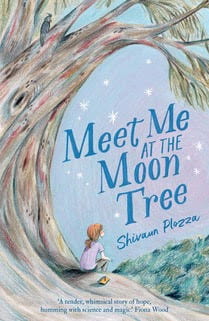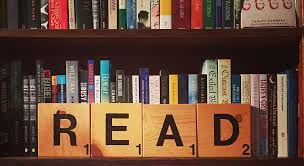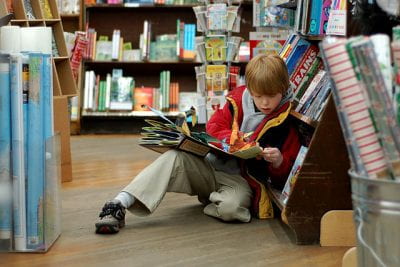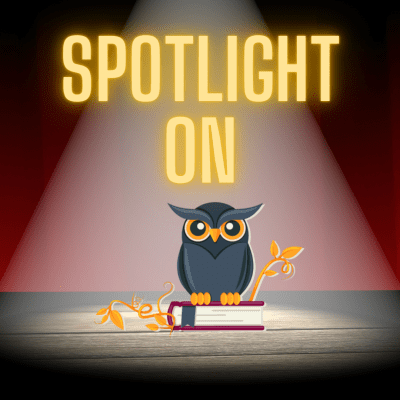 For those of you who attended the October 26 Reading Forum, you may understand why I was eager to read Shivaun Plozza’s latest young adult novel, “Meet Me at the Moon Tree”. We were privileged to be able to hear Shivaun speak about her inspiration for this novel, and I have to honestly say that I was excited about the potential for including this text in the curriculum.
For those of you who attended the October 26 Reading Forum, you may understand why I was eager to read Shivaun Plozza’s latest young adult novel, “Meet Me at the Moon Tree”. We were privileged to be able to hear Shivaun speak about her inspiration for this novel, and I have to honestly say that I was excited about the potential for including this text in the curriculum.
“Meet Me at the Moon Tree” is a beautiful exploration of grief and relationships: how grief can present differently in everyone, and how important all types of relationships are to being able to manage one’s grief. When Carina’s father dies from cancer, her mother moves the family to the Otway Ranges as both a fresh start and a way of remembering their patriarch. Carina has made a promise to her father, to search for the Moon Tree that he has told her will be in the forest behind their new home. But Carina’s family are struggling in the face of their grief – her mother and brother are angry, Carina is lonely and her Grandpa is doing his best to help them all.
This is a special title for a Teacher Librarian, because there is just so much in it that can be used to support teaching and learning, and the more I searched through the curriculum, the more I was able to find. With a focus on ‘healthy relationships’ and also how grief can affect everyone differently, it’s an obvious choice to match some of the Health curriculum. However, Carina’s passion for dendrology, and her scientific approach to finding the Moon Tree also makes it suitable for some areas of Science. It covers off the Personal and Social General Capability, and it works well for an exploration of Sustainability, under the Cross Curriculum Priorities. Check out the table below for some ideas as to how you could use excerpts of this wonderful novel in your curriculum planning. You can also find teacher’s notes on the UQP website (https://www.uqp.com.au/books/meet-me-at-the-moon-tree).
This novel would be suitable for students in Years 5-8. It should come with a box of tissues – for students who have experienced the loss of a loved one, they may find themselves connecting closely with Carina, and perhaps shedding a few tears. However, this a truly beautiful story, with some incredible messages about friendship and never giving up hope.
| Curriculum area | Matching plot and curriculum | Possible activities |
| Level 5 & 6 Science
VCSSU074 Living things have structural features and adaptations that help them to survive in their environment
VCSSU075 The growth and survival of living things are affected by the physical conditions of their environment
|
The plot is based around the ‘moon tree’ – an experiment from 1971 when hundreds of tree seeds were sent into space in order to understand how being in zero gravity might affect them once they were planted back on Earth.
|
Students can research the original experiment and present their findings.
Students could identify a range of environmental conditions that may affect the growth of seedlings. They could then replicate the experiment based on their own hypothesis and observe the growth of their own seedling (for example, how might heating or cooling a seedling affect its growth?) |
| Level 7 & 8 Science
VCSSU091 There are differences within and between groups of organisms; classification helps organise this diversity
|
Carina refers to herself as a ‘dendrologist’ and conducts a logical experiment to classify all of the trees that she finds in the forest while searching for the moon tree. | Students could reproduce Carina’s experiment within an area of the school yard, searching for a specific tree and identifying and classifying others that they come across in their search. |
| Level 7 & 8 Health
VCHPEP126 Investigate and select strategies to promote health, safety and wellbeing
|
Carina’s family are dealing with the grief that results from the death of her father, from cancer.
Carina’s grandpa has also moved in with the family due to his diagnosis of Parkinson’s. |
Students can research and present their findings on the services available for managing grief, dealing with a diagnosis, specifically considering cancer or Parkinson’s. They could evaluate which options are most appropriate for Carina’s family. |
| Level 5 & 6 Health
VCHPEP110 Examine the influence of emotional responses on behaviour, relationships and health and wellbeing
|
Each member of Carina’s family attempts to manage their grief in different ways – Carina remains positive and wants to create ‘memory seeds’ of her father, her mother withdraws and her brother becomes angry.
|
Students can examine the differences in each character’s reactions and how they affect the family dynamics. Through a series of hypothetical scenarios, students could identify how the individual behaviours affect others, and their own wellbeing and present ideas of how each character could be better supported. |
| Level 7 & 8 Health
VCHPEP127 Investigate the benefits of relationships and examine their impact on their own and others’ health and wellbeing
VCHPEP128 Analyse factors that influence emotions, and develop strategies to demonstrate empathy and sensitivity
|
Carina is concerned about making friends after she has moved. She recalls her ‘old’ friends, and how the relationship changes due to distance. When she meets a new friend, she is worried that Betty will be bored by Carina’s interest in trees. Grandpa helps Carina to see that friendships can be a bit like ‘companion planting’ in a garden and that you just need to find the companion that works best for you. | Students can explore the relationships that occur throughout the novel, creating a mind map that identifies the different relationships.
They could explore the idea of ‘companion planting’ and analyse how that could relate to their own lives, helping them to make appropriate connections between their own relationships. |
| Level 5 & 6 Personal & Social Capability
VCPSCSE025 Explore the links between their emotions and their behaviour
VCPSCSE027 Describe what it means to be confident, adaptable and persistent and why these attributes are important in dealing with new or challenging situations
VCPSCO031 Describe the characteristics of respectful relationships and suggest ways that respectful relationships can be achieved.
|
Carina and her family have a number of ‘every day’ situations that need to be managed, and many of their decisions are influenced by their grief.
– Moving house – Making new friends – Managing anger & grief – Staying resilient in the face of surrounding negativity – Over protective parents – Getting lost in a forest in the middle of a storm – Looking after a pet – Being brave and speaking up
|
Students can be presented with the range of different scenarios that occur throughout the novel, and examine how each of the character’s deal with those situations, and how their actions affect the others around them.
They can evaluate which responses work and which don’t and identify a range of ways that they may be able to apply those reactions to their own lives.
They could write their own scenarios and identify how they think their ‘characters’ should behave. |

 Our thanks to those of you able to join us for our book club meeting to discuss titles and strategies for engaging Reluctant Readers. As always, so many of you had so many wonderful contributions to share with us, and it is very appreciated. This topic has been one of our most popular book club meetings and our third discussion on this subject. It was wonderful to engage with new recommendations, revisit old favourites and consider strategies that help school libraries support their reluctant readers.
Our thanks to those of you able to join us for our book club meeting to discuss titles and strategies for engaging Reluctant Readers. As always, so many of you had so many wonderful contributions to share with us, and it is very appreciated. This topic has been one of our most popular book club meetings and our third discussion on this subject. It was wonderful to engage with new recommendations, revisit old favourites and consider strategies that help school libraries support their reluctant readers.

